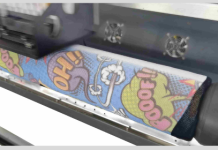Science is one of the most powerful subjects for developing young minds. It encourages children to ask questions, seek answers, and understand the world around them. From exploring why the sky is blue to discovering how plants grow, science nurtures curiosity and analytical thinking—skills essential for success in both academics and life. However, many students struggle to grasp scientific concepts when they are presented in a purely theoretical way. This is where structured and engaging learning programs can make a profound difference.
High-quality Primary Science Tuition helps children approach science not as a set of facts to memorize, but as a journey of exploration and discovery. Through guided lessons, experiments, and problem-solving activities, students learn to think critically, connect ideas, and apply their knowledge to real-world situations.
Fostering Natural Curiosity Through Inquiry-Based Learning
Children are naturally curious, and science tuition channels this curiosity into structured learning experiences. Inquiry-based learning encourages students to ask questions like “Why does this happen?” or “What will change if I do this differently?” rather than simply accepting information. By investigating phenomena, conducting experiments, and observing results, students develop a hands-on understanding of scientific principles.
This approach not only builds engagement but also strengthens cognitive abilities such as reasoning, observation, and hypothesis testing. As children explore answers through evidence and experimentation, they gain confidence in their ability to think independently and critically.
Making Science Relatable to Everyday Life
One of the main challenges in learning science is connecting abstract theories to everyday experiences. Effective tuition bridges this gap by linking classroom concepts to real-life applications. For example, students might learn about energy by exploring how batteries power a flashlight or understand ecosystems through local environmental studies.
When science is taught in a relatable context, students see its value and purpose. They begin to understand how the principles of physics, chemistry, and biology shape the world around them, sparking a deeper and more sustained interest in the subject.
Developing Analytical and Problem-Solving Skills
Science is inherently about analysis and problem-solving. Students must learn to observe carefully, record data accurately, and draw logical conclusions. Primary Science Tuition emphasizes these skills by guiding students through experiments that require observation, interpretation, and reflection.
For instance, during a lesson on materials, students may compare how different substances react to heat or water. Through such hands-on investigations, they develop analytical thinking—learning how to evaluate information, identify patterns, and make evidence-based conclusions. These are not only scientific skills but also essential life skills that support success in all areas of learning.
Encouraging Independent and Collaborative Learning
A strong science program strikes a balance between independent and collaborative learning. Students work individually to develop responsibility and focus while also participating in group experiments that foster teamwork, communication, and shared problem-solving.
Collaboration allows learners to discuss different viewpoints, challenge assumptions, and refine their ideas based on peer feedback. These interactions help children build social intelligence while deepening their understanding of scientific inquiry. Working in teams also mirrors how real scientists collaborate to make discoveries, giving students a glimpse into the world of professional science.
Strengthening Conceptual Understanding Through Practice
Mastery in science depends on consistent practice and reinforcement. A well-structured tuition program ensures that students regularly revisit key topics such as energy, matter, life cycles, and forces. Repetition, combined with varied teaching methods, helps solidify understanding and long-term retention.
Visual aids, diagrams, and real-world experiments further enhance comprehension. By connecting theory with tangible experiences, children can visualize complex processes, making learning both engaging and effective. Over time, they develop the ability to explain concepts clearly and apply them to new contexts with confidence.
Building Confidence and a Growth Mindset
Science often challenges students to think deeply and accept that mistakes are part of the learning process. Through guided support and encouragement, tuition helps students develop resilience and a growth mindset—the belief that ability can be improved through effort and practice.
Teachers play a key role in creating a positive learning environment where curiosity is encouraged and errors are seen as opportunities for growth. As students persist through challenges, they become more confident in their reasoning and more motivated to explore further.
Preparing Students for Future Success
Analytical thinking and curiosity form the foundation for lifelong learning. Children who learn to ask questions, test ideas, and evaluate outcomes are better equipped to handle academic challenges and real-world problems. Science tuition not only improves grades but also nurtures essential skills such as logic, adaptability, and creativity.
Moreover, early exposure to scientific thinking can inspire future interests in STEM (Science, Technology, Engineering, and Mathematics) fields. By cultivating a love for discovery at an early age, students gain the mindset needed for innovation and success in an increasingly knowledge-driven world.
Conclusion
Primary Science Tuition plays a transformative role in shaping young learners into curious, analytical, and confident thinkers. By combining inquiry-based learning, real-world relevance, and hands-on practice, it helps children develop the intellectual tools needed to understand and engage with the world around them.
Ultimately, nurturing curiosity and analytical thinking from a young age ensures that students not only excel academically but also grow into lifelong learners who continue to question, explore, and innovate.



